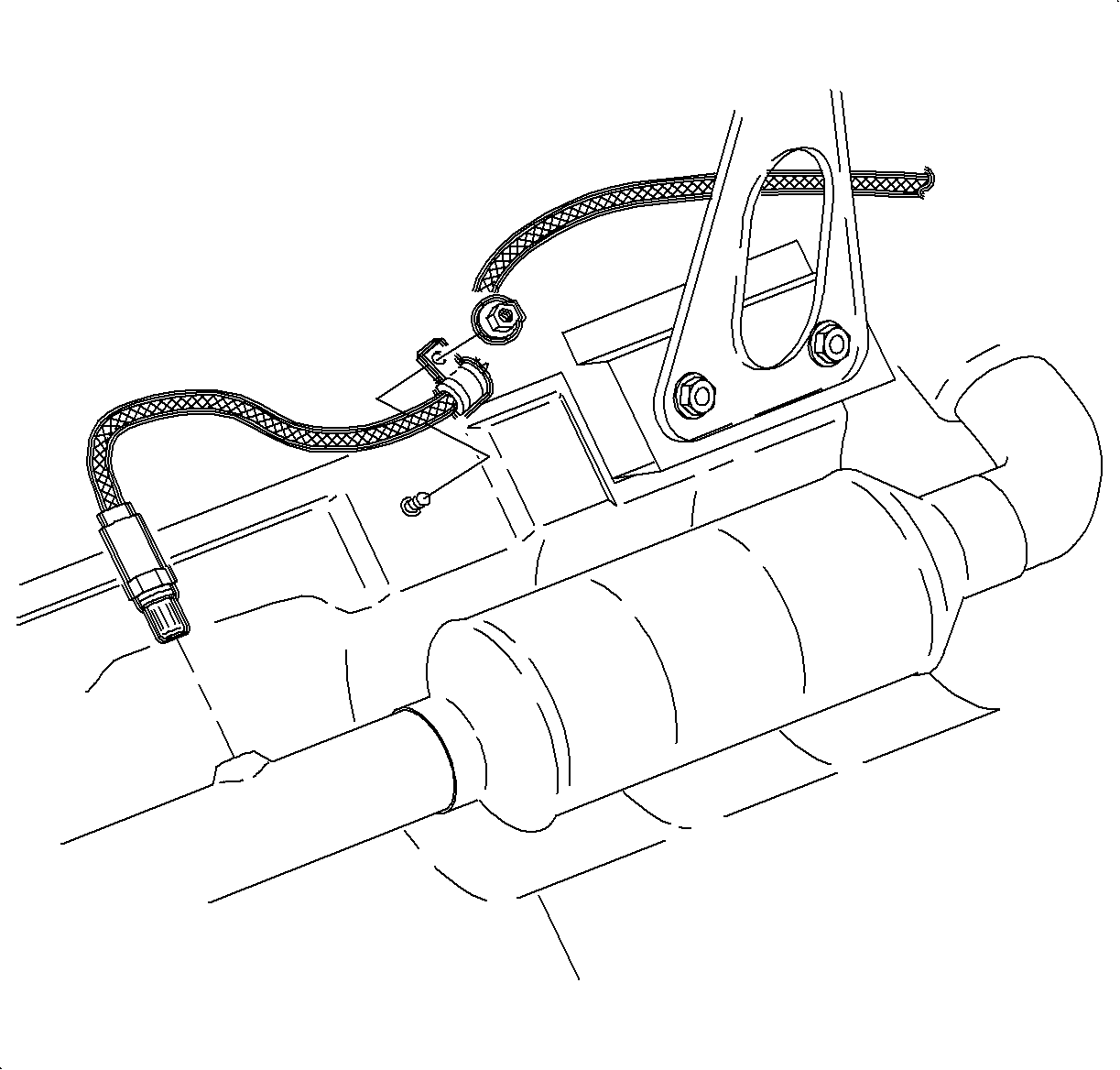Oxygen Sensor Replacement HO2S-1
Special Tools
J 39194-C Oxygen Sensor Wrench
Removal Procedure
- Turn the ignition OFF.
- Disconnect the HO2S-1 harness connector.
- Remove the sensor harness and connector from the attachment clip.
- Use a liquid penetrate before removing the sensor.
- Remove the HO2S-1 using the J 39194-C or equivalent.
Notice: The HO2S uses a permanently attached pigtail and connector. This pigtail should not be removed from the HO2S. Damage or removal of the pigtail or connector could affect proper operation of the sensor.
Important: Removal of the sensor is easier if the exhaust system is slightly warmed up. Be careful that the exhaust is not hot to work on safely. Moving the sensor back and forth while applying penetrating oil to the threads will aid in the removal and will decrease the chance of exhaust pipe thread damage.
Installation Procedure
- Apply a small amount of anti-seize compound Saturn P/N 21485279 or equivalent to the threads of the HO2S-1.
- Install the HO2S-1 using the J 39194-C or equivalent.
- Install the sensor harness and connector to the attachment clip.
- Connect the HO2S-1 harness connector. Push in the connector until a click is heard and pull back to confirm a positive engagement.
Notice: Silicone based products will contaminate the HO2S. Use only a nickel based anti-seize compound that does not contain silicone.
Notice: Refer to Fastener Notice in the Preface section.
Tighten
Tighten the oxygen sensor-to-exhaust manifold to 45 N·m (33 lb ft).
Important: DO NOT apply any material in the HO2S-1 harness connector such as grease or dielectric compound.
Oxygen Sensor Replacement HO2S-2
Special Tools
J 39194-C O2 Sensor Wrench
Removal Procedure
- Turn the ignition OFF.
- Raise the vehicle.
- Disconnect the HO2S-2 harness connector.
- Remove the HO2S-2 harness clip from the heat shield attachment.
- Use a liquid penetrate before removing the sensor.
- Remove the HO2S-2 using the J 39194-C or equivalent.

Notice: The HO2S uses a permanently attached pigtail and connector. This pigtail should not be removed from the HO2S. Damage or removal of the pigtail or connector could affect proper operation of the sensor.
Caution: Refer to Vehicle Lifting Caution in the Preface section.
Caution: Removal of the sensor is easier if the exhaust system is warmed up slightly. Be careful that it is not too hot to work on safely. Applying penetrating oil to the threads while moving the sensor back and forth will also aid in removal and will decrease the chance of exhaust pipe thread damage.
Installation Procedure
- Apply a small amount of anti-seize compound Saturn P/N 21485279 or equivalent to the threads of the HO2S-2.
- Install the HO2S-2 using the J 39194-C or equivalent.
- Install the HO2S-2 harness clip to the heat shield attachment bolt.
- Connect the HO2S-s harness connector. Push in the connector until a click is heard, then pull back to confirm a positive engagement.
- Make sure the HO2S-2 harness pigtail connector is secured to the chassis.
Notice: Silicone based products will contaminate the HO2S. Use only a nickel based anti-seize compound that does not contain silicone.
Notice: Do Not apply any material in the HO2S-2 harness connector such as grease or dielectric compound. The wires carry air reference to the sensor in order for the sensor to operate properly.
Tighten
Tighten the HO2S-2 sensor-to-exhaust pipe to 45 N·m
(33 lb ft).
Tighten
Tighten the HO2S-2 harness clip-to-heat shield bolt
to 4 N·m (35 lb in).
